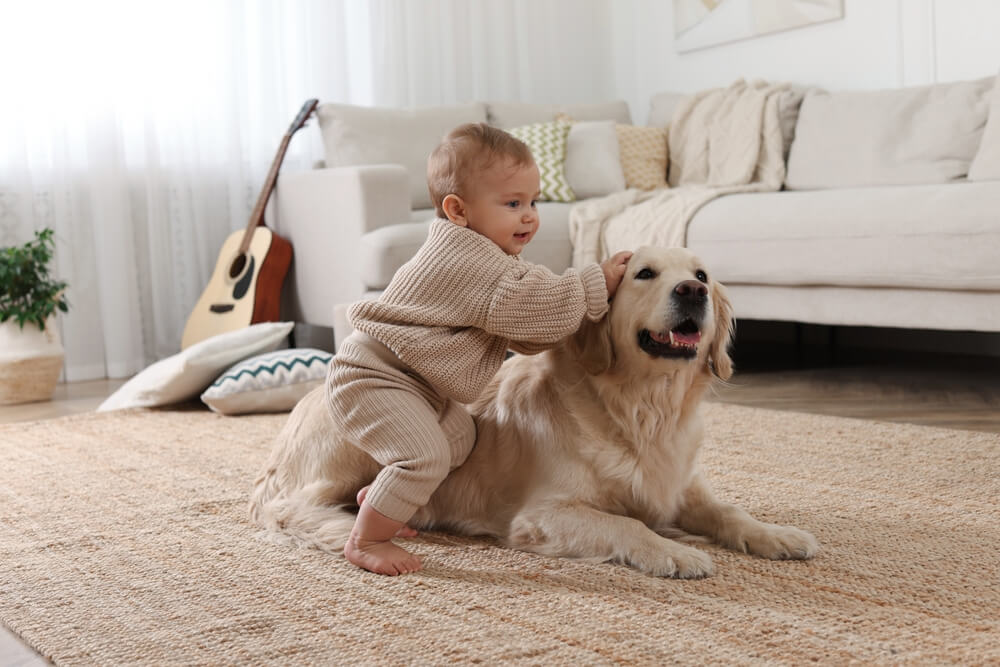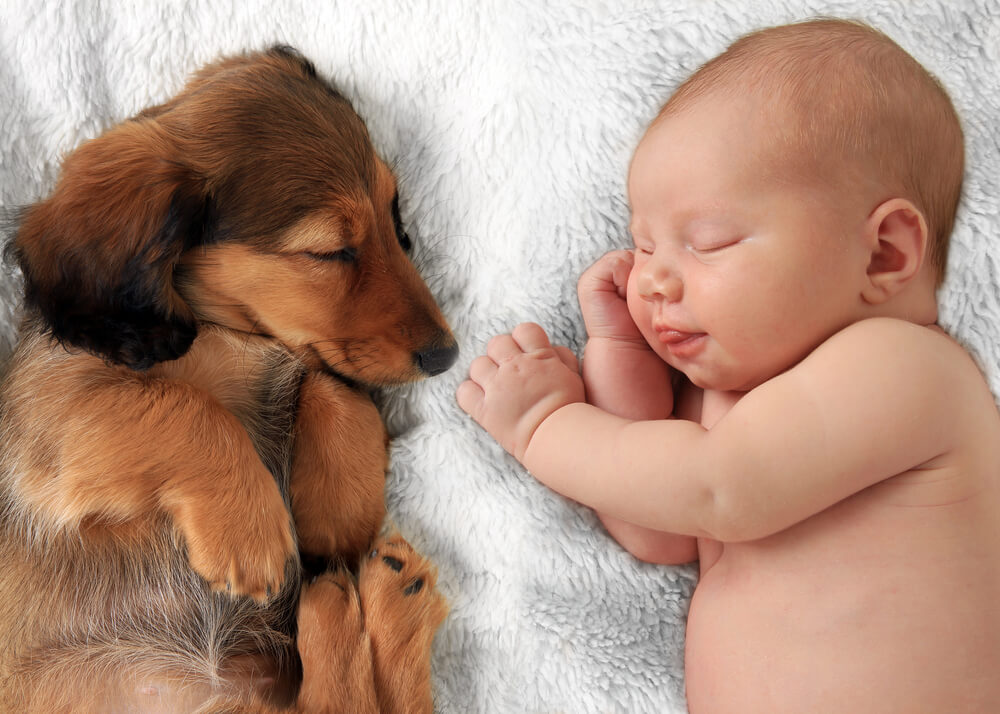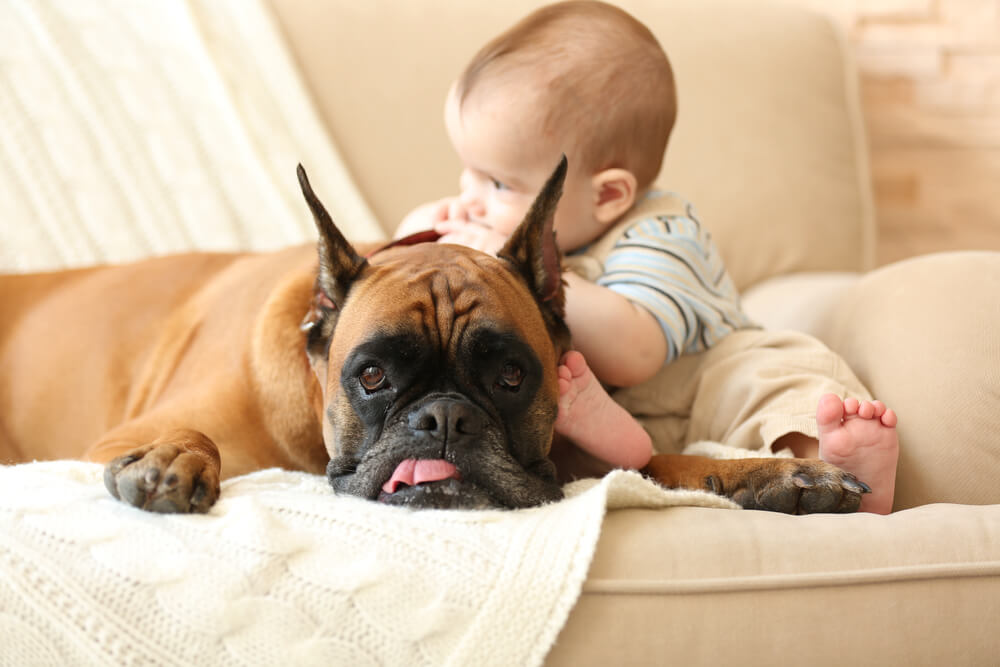Bringing a new baby into your home is a joyous and exciting occasion. However, it can also be a big adjustment for your beloved pets. If you’re a pet owner expecting a new addition to your family, it’s important to take steps to prepare your pets for the baby’s arrival. In this article, your trusted clinic of Obstetrics and Gynecology in South Miami, Florida, will explore how to prepare your dog for a baby, offer tips on introducing your dog to your newborn, and provide valuable advice on ensuring a harmonious environment for both infants and dogs.
Preparing Your Dog for a Baby

Welcoming a baby into your home means big changes for everyone, including your canine companion. Here’s how to prepare your dog for the upcoming arrival:
- Maintain Routine Stability: Dogs thrive on routine, so it’s essential to keep their daily schedule as consistent as possible. Gradually introduce any anticipated changes to their routine, such as adjusting feeding times or walking schedules, well before the baby arrives.
- Socialization and Training: If your dog hasn’t been exposed to children, consider arranging playdates with friends or family who have infants or toddlers. This can help your dog become accustomed to the sights and sounds of little ones. Additionally, ensure your dog is well-trained and responsive to basic commands like “sit,” “stay,” and “leave it.”
- Create a Safe Haven: Designate a quiet and comfortable space for your dog where they can retreat to when they need a break from the commotion. This should be a spot where your pet feels secure and can relax.
- Desensitization to Baby Gear: Gradually introduce your dog to baby-related items like strollers, cribs, and baby carriers. Allow them to sniff and investigate these items to reduce their curiosity and anxiety when the baby arrives.
- Positive Associations: Use positive reinforcement to associate the baby’s presence with pleasant experiences. Reward your dog with treats, affection, and playtime when they behave calmly around baby-related items or sounds.
How to Introduce Your Dog to a Baby
The big day has arrived, and it’s time for your dog to meet the newest member of your family. Follow these steps for a smooth introduction:
- Scent Introduction: Before bringing your baby home, have a family member or friend bring a blanket or clothing that the baby has used at the hospital. Allow your dog to sniff and become familiar with the baby’s scent.
- Controlled Introduction: When you first arrive home with your baby, have one person hold the baby while the other tends to the dog on a leash. Keep the initial meeting calm and controlled. Allow your dog to approach the baby at their own pace and reward them for gentle and calm behavior.
- Supervised Interactions: Always supervise interactions between pets and newborns. Start with short, positive interactions and gradually increase the time your dog spends with the baby as they become more comfortable.
- Maintain Boundaries: Teach your dog to respect boundaries around the baby’s sleeping and feeding areas. This will help ensure the safety and comfort of both your pet and your infant.
- Positive Reinforcement: Reward your dog for gentle and appropriate behavior around the baby. Use treats and praise to reinforce positive interactions.
Preparing Your Dog for Baby: Common Challenges and Solutions
As you learn how to prepare your dog for your baby’s arrival, you may encounter some common challenges. Here’s how to address them:
- Jealousy: Dogs can sometimes feel jealous when a new baby gets a lot of attention. Ensure you still spend quality time with your dog and involve them in baby-related activities when possible.
- Aggression or Fear: If your dog displays aggression or fear towards the baby, consult a professional dog trainer or behaviorist immediately. Safety should always be the top priority.
- Excessive Barking: If your dog barks excessively when the baby cries, train them to remain calm in these situations. Use positive reinforcement to reward quiet behavior when the baby is upset.
- Nipping or Mouthing: Some dogs may engage in nipping or mouthing behavior out of curiosity. Gently correct this behavior and redirect your dog’s attention to appropriate toys.
Infants and Dogs: Building a Lifelong Bond
Pets and newborns can form incredibly close and lasting bonds. Here are some tips to foster a positive relationship between your baby and your dog:
- Supervise Playtime: As your child grows, they may want to interact more with your dog. Always supervise their playtime to ensure it remains safe and enjoyable for both.
- Teach Gentle Touch: Teach your child from an early age to be gentle and respectful when interacting with the dog. Encourage them to use soft touches and avoid pulling on ears or tails.
- Educate Your Child: As your child grows, educate them about dog safety, including not bothering the dog when they are eating or resting.
- Maintain Routine: Continue to prioritize your dog’s routine and needs, even with a busy household. This consistency will help your pet feel secure and reduce potential jealousy.
- Include Your Dog: Involve your dog in family activities and outings when possible. This reinforces their place as a valued member of the family.

It’s important to remember that every dog is unique, and how they react to a new baby can differ greatly. Some dogs may immediately take to the baby, while others might require more time to adjust. Be patient and understanding of your dog’s individual needs and emotions during this transition period. Seek guidance from a professional dog trainer or behaviorist if you encounter any challenges or concerns, as they can provide tailored advice to address specific issues. With the right preparation and ongoing care, your pets and newborn can coexist harmoniously, creating a loving and safe environment for your growing family.
In addition to preparing your dog for the baby, it’s also a good idea to educate yourself about newborn safety and baby-proofing your home. Secure items that could be potentially harmful to your child, such as chemicals, small objects, and sharp edges. This proactive approach will not only protect your baby but also provide peace of mind for both you and your furry friend. Remember, a well-prepared home is a safer and happier place for everyone in your family, including your pets and newborn.
Conclusion
Preparing your dog for a baby’s arrival is a process that requires patience, diligence, and love. By following these steps and maintaining a positive attitude, you can ensure a smooth transition for your pets when welcoming your newborn into your home. Remember, a well-prepared dog can become a loyal and loving companion to your child, creating a bond that will last a lifetime. So, embrace the journey of expanding your family and cherish the moments of joy and love that both your pets and your infant will bring into your life.


